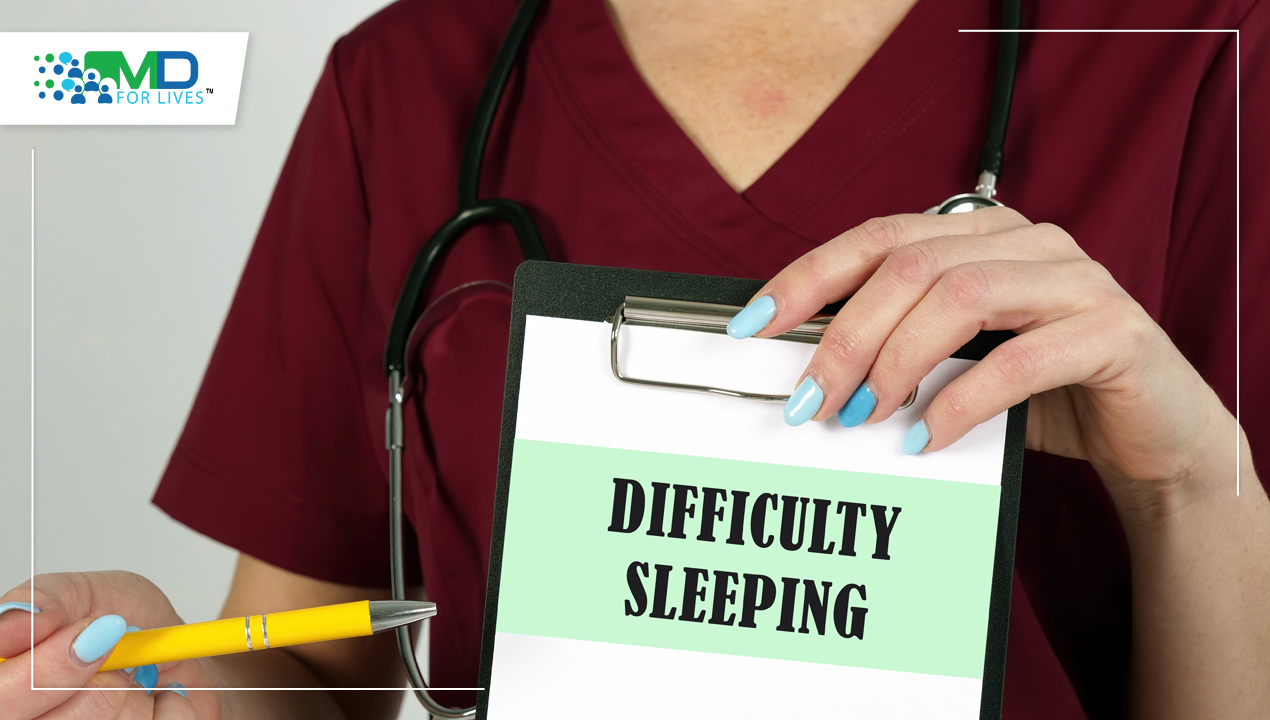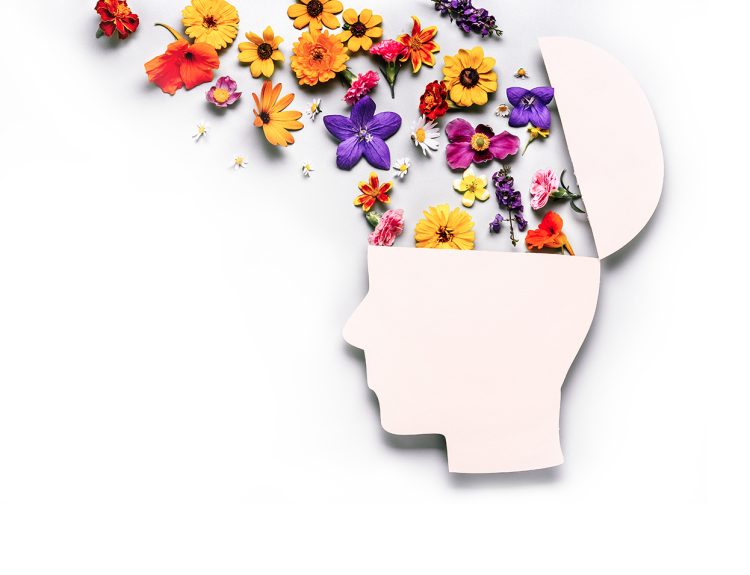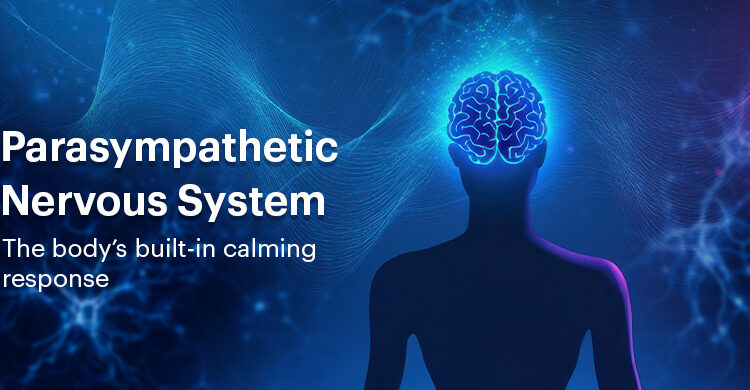“Do you have difficulty sleeping?” or “Are you having trouble falling or staying asleep?”. In this blog explores Types of insomnia, symptoms, causes and consequences, treatment how insomnia and emotional turmoil are deeply intertwined and what drives this destructive feedback loop.
What is Insomnia?
In the sleep literature, the term “insomnia” is occasionally used to describe the presence of polysomnographic evidence of disturbed sleep. Insomnia is defined as the presence of long sleep latency, frequent nocturnal awakenings, prolonged periods of wakefulness during the sleep period, or even frequent transient arousals. As a result, insomnia has been viewed as both a symptom and a sign.
Types of Insomnia
Insomnia is classified into two types: acute and chronic
Acute insomnia typically lasts several days to weeks and is frequently triggered by a recent stressful event (physical, psychological, or interpersonal). This usually goes away when the stressor improves or is resolved, but it can progress to chronic insomnia.
Chronic insomnia is defined as difficulty falling asleep, staying asleep, or waking up in the early morning and unable to sleep again for at least three nights per week for at least three months.
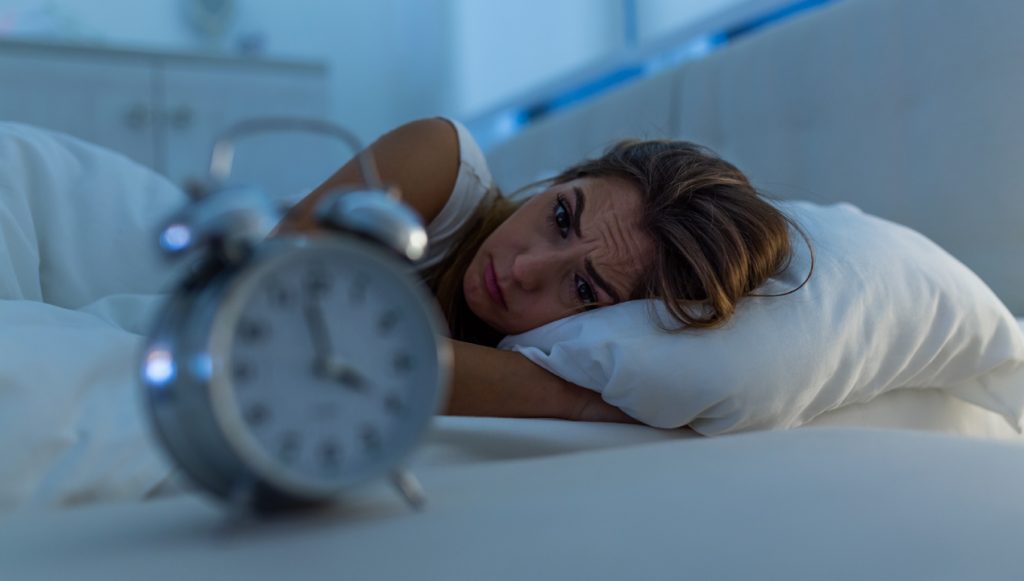
Insomnia Symptoms:
Insomnia symptoms include a variety of sleep difficulties as well as daytime issues. Common sleep problems that may indicate the presence of insomnia include
- Having difficulty falling asleep
- Having difficulty sleeping through the night
- Unwanted waking in the early morning
- Tiredness
- Impaired attention or memory
- Reduced motivation
- Concerns about or dissatisfaction with one’s sleep,
- Agitation, especially in children
- Disturbed mood
Common Causes of Insomnia:
- Chronic insomnia is caused by a variety of factors, including anxiety, stress, and depression. Sleeping problems can exacerbate anxiety, stress, and depression symptoms. Anger, worry, grief, bipolar disorder, and trauma are also common emotional and psychological causes.
- Numerous illnesses and medical conditions, such as allergies, Parkinson’s disease, acid reflux, cancer, chronic pain, etc., can cause insomnia.
- Insomnia can be brought on by other sleep disorders like sleep apnea, restless legs syndrome, and irregular circadian rhythms.
- Using sleeping pills or alcohol to fall asleep causes sleep disruption in the long run.
- Excessive coffee consumption during the day may make it difficult to fall asleep at night.
- Insomnia can be brought on by a poor sleep schedule, naps, eating sugary or fatty foods too close to bedtime, not getting enough exercise, or exercising too late in the day.
- Antidepressants, ADHD stimulants, corticosteroids, thyroid hormones, high blood pressure medications, and many other prescription drugs can disrupt sleep.
Consequences of Insomnia:
Sleep deprivation (less than 7 hours per night) can have a variety of consequences for the cardiovascular, endocrine, immune, and nervous systems, including the following:
- Obesity in children and adults: There is a dose-response relationship between sleep loss and obesity in people who sleep less than 7 hours per night: the less sleep they get, the more obese they are, as determined by their body mass index (BMI), which is calculated by dividing their weight in kilograms by their height in meters squared. As trends in sleep loss worsen, the serious public health issue of obesity may continue to rise.
- Diabetes and glucose intolerance: An experimental study in which 11 healthy male volunteers were restricted to 4 hours of sleep for six nights also supports the link between shorter sleep times and impaired glucose tolerance. Even after such a short period of time, the study discovered that sleep deprivation resulted in impaired glucose tolerance when compared to a fully rested state. After returning to normal sleep, the effect subsided. With sleep loss, glucose clearance was 40% slower than with sleep recovery.
- Hypertension and cardiovascular disease: Several potential mechanisms, such as blood pressure increases, sympathetic hyperactivity, or impaired glucose tolerance, could explain the link between sleep loss and cardiovascular events. Experimental data indicating that one night of acute sleep deprivation (3.6 hours of sleep) results in increased blood pressure in healthy young males may provide a biological mechanism for the associations between sleep deprivation and cardiovascular disease.
- Anxiety, depression, and alcoholism: Several studies of adolescents, including one with over 3,000 high school students, discovered that insufficient sleep is associated with higher levels of depressed mood, anxiety, behavioral problems, and alcohol use.
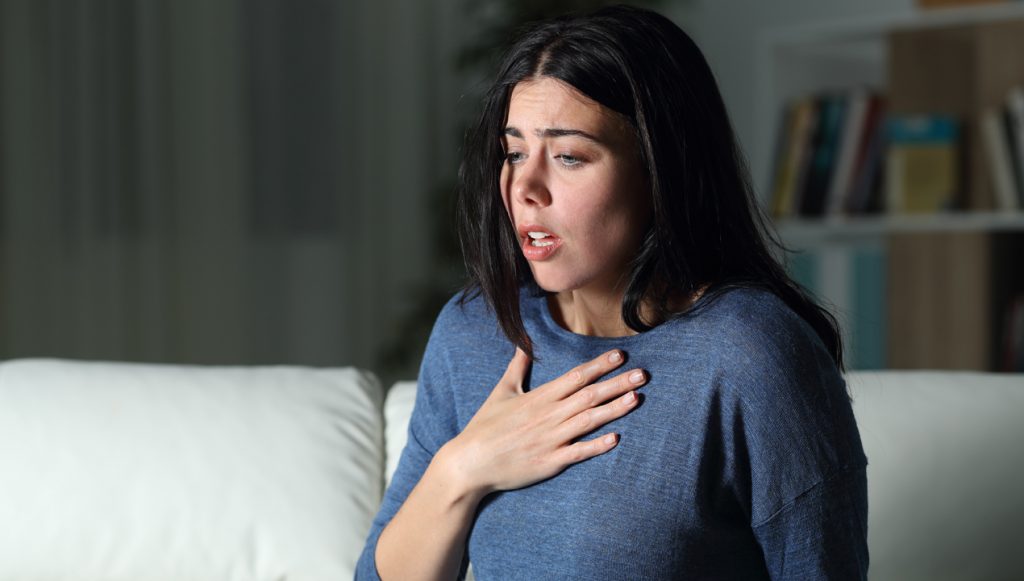
Treatment of Chronic Insomnia:
Chronic insomnia treatment begins with identifying and treating the underlying medical or psychological issues. The identification of behaviors that may worsen insomnia and their cessation (or reduction) would aid in its elimination. Following that, pharmacology may be tried, though the long-term use of drugs for chronic insomnia is debatable.
Non-pharmacology management strategies can also be helpful, which include the following:
- Stimulus control therapy: Stimulus control therapy includes the following educational procedures: only going to bed when feeling sleepy, only using the bed and bedroom for sleep and sex and not for anything else, such as watching TV, getting out of bed and into another room whenever unable to fall asleep or returning to sleep within 15-20 minutes and returning to bed only when sleepy again, maintaining a regular rising time in the morning regardless of how much or how little sleep was received the night before, and avoiding using stimulants like caffeine and nicotine.
- Sleep restriction therapy: In order to simulate the subjective amount of time spent sleeping, sleep restriction therapy involves limiting the amount of time spent in bed. Following that, when sleep efficiency (defined as the ratio of total sleep/time spent in bed 100%) exceeds 90%, the allowable time in bed is increased by 15-20 minutes for a given week, decreased by the same amount of time when sleep efficiency is less than 80%, and maintained stable when sleep efficiency falls between 80 and 90%. Adjustments are made on a regular basis (usually once a week) until an optimal sleep duration is achieved.
- Cognitive therapy: The goal of cognitive therapy is to break the vicious cycle of insomnia, emotional distress, dysfunctional cognitions, and additional sleep disruptions. It aims to change erroneous sleep beliefs and attitudes.
Pharmacotherapeutic agents include:
- Benzodiazepines
- Non-benzodiazepine hypnotics
- Tricyclic antidepressants
- Antihistamines
Alternative Medications Include:
- Valerian, a perennial plant that appears to increase GABA concentrations in animals.
- Skullcap,
- Passionflower,
- California poppy,
- Lemon balm
Conclusion
The vicious cycle between insomnia and emotional distress is well-documented yet often overlooked. Addressing only sleep or only emotional symptoms rarely brings long-term relief. A holistic approach—combining sleep hygiene, therapy, lifestyle adjustments, and medical evaluation when needed—offers the best path forward. Understanding the cycle is the first move toward breaking it.
Also read,
Ashwagandha – Efficacy and Safety
References:
- Extent and Health Consequences of Chronic Sleep Loss and Sleep Disorders. National Library of Medicine. https://www.ncbi.nlm.nih.gov/books/NBK19961/. Accessed 2/14/2023
- Diagnosis and treatment of chronic insomnia. National Library of Medicine. https://www.ncbi.nlm.nih.gov/pmc/articles/PMC2924526/. Accessed 2/14/2023
- Insomnia: Definition, Prevalence, Etiology, and Consequences. National Library of Medicine. https://www.ncbi.nlm.nih.gov/pmc/articles/PMC1978319/. Accessed 2/14/2023
- Insomnia. NHS inform. https://www.nhsinform.scot/illnesses-and-conditions/mental-health/insomnia. Accessed 2/14/2023
- What Is Insomnia? National Heart, Lung, and Blood Institute. https://www.nhlbi.nih.gov/health/insomnia. Accessed 2/14/2023

MDForLives is a global healthcare intelligence platform where real-world perspectives are transformed into validated insights. We bring together diverse healthcare experiences to discover, share, and shape the future of healthcare through data-backed understanding.

